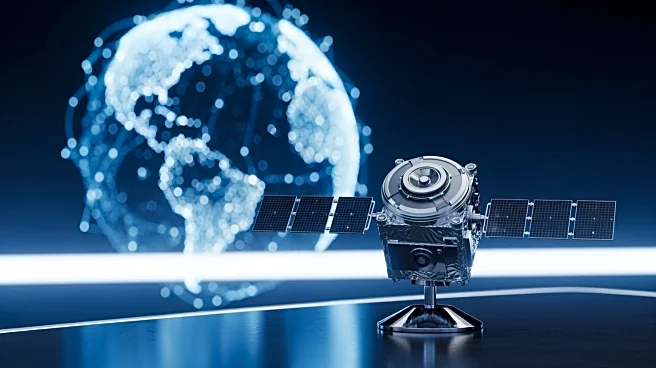What's Happening?
The European Space Agency (ESA) is preparing for a crucial ministerial council meeting in Bremen, Germany, scheduled for November 26-27. This triennial summit will address funding plans amid heightened
international competition and evolving relationships. The meeting is particularly significant due to the European Union's ambition to enhance military space capabilities and the impact of the Trump administration's 2026 budget proposal for NASA, which includes cuts affecting ESA missions. ESA officials are working to finalize a €22 billion funding proposal, with individual member states expected to pledge support for various programs. Key issues include the future of the Mars sample return mission and the European Service Module for NASA's Artemis lunar program.
Why It's Important?
The decisions made at the ESA ministerial meeting will have significant implications for Europe's position in the global space industry. The funding allocations will determine the trajectory of key programs, including military space initiatives and Earth science missions. The potential redirection of the Mars sample return mission and the European Service Module could impact international collaboration and technological advancements. Additionally, the meeting will address Europe's resilience in space, with plans to develop a low-Earth-orbit position, navigation, and timing system to enhance the Galileo constellation. These developments are crucial for maintaining Europe's competitiveness and autonomy in space technology.
What's Next?
ESA officials are expected to finalize the funding proposal on November 17, ahead of the ministerial meeting. The outcomes will dictate ESA's agenda for the coming years, with potential adjustments to missions and collaborations based on funding pledges. The meeting will also coincide with the Space Tech Expo in Bremen, where industry stakeholders will convene to discuss technological advancements and partnerships. The decisions made at the ministerial meeting will influence ESA's ability to support military space goals and Earth science missions, as well as its capacity to adapt to changes in U.S. contributions.
Beyond the Headlines
The ESA ministerial meeting highlights the broader geopolitical dynamics influencing space exploration and technology development. The EU's focus on military space capabilities reflects a strategic shift towards enhancing security and autonomy in space. The potential repurposing of the European Service Module for other missions underscores the need for flexibility and innovation in response to budgetary constraints. Additionally, the emphasis on Earth science missions aligns with global efforts to address climate change and environmental challenges, showcasing the intersection of science, policy, and international collaboration.









